This is a rather complicated question that may simply be impossible with what's currently available, but if there was an easy way of doing it it would be huge.
I'm debugging some JavaScript in Chrome, and because it's very event-driven, I prefer to get trace reports of the code (what got called, etc.) instead of breakpoints. So wherever I leave a breakpoint, I'd like to see the local function name and arguments.
The closest I can get is to drop a conditional breakpoint in, like the following:

There are two big problems with this approach:
- Pasting this into each breakpoint is too cumbersome. People would be far more likely to use it if it could be chosen as the default action for each breakpoint.
- In Google Chrome, the log calls get fired twice.
Any ideas on a way to surmount either of these problems? I think it might be possible in IE with VS, but the UI there seems equally cumbersome.